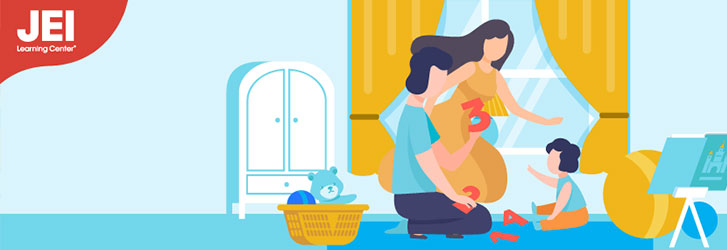
How you behave can prepare your child for kindergarten
Your children are ready to enter kindergarten-but like all parents, you have your concerns. How can you make sure your children are ready for this milestone? By monitoring your own behavior, especially when you are around them.
Children at a young age are particularly observant and malleable. They learn about the world around them through analysis, so your behavior will be the one they will model their own behavior on when they enter society. This is particularly important early on when children are just developing their Emotional Quotient (EQ) and communication skills.
So how can you make sure they are ready for kindergarten?
Say “Please” and “Thank You”
It is your responsibility to show children good behavior, meaning they should be saying all the correct things at the appropriate times. When they ask for something, they should include “please.” After receiving something, they should say, “Thank you.” Other phrases could be “excuse me” and “bless you.” The more you use these phrases, the more your children will emulate this and learn when is the right time to use them.
Express Your Feelings
It is important for children to develop their communication skills. Otherwise, it is difficult for teachers to understand their needs. They may not be comfortable expressing themselves at first, so show them how it’s done! Use phrases starting with “I feel…” and “I think…” and add in a variety of adjectives, like sad, happy, confused, and hungry. This will make children more comfortable with sharing their feelings and thoughts with others, as well as help them recognize what certain feelings are.
Recognize Others’ Feelings
Children may have a difficult time recognizing other people’s facial expressions and empathizing with how they’re feeling. Their EQ is still in its early stages. Show them to observe and understand by making note of how others feel. If one child is frowning, you can point this out to your other child with, “I think your brother is sad because you won’t listen to his story.” These hints will give them better ideas on how to read other people and behave accordingly.
Socialize With Others
A big part of kindergarten is learning to socialize with other children and adults on a daily basis. This can be new and frightening for young children, but you can make it seem normal by socializing with others in a comfortable and friendly manner. Chat with neighbors for a few minutes instead of rushing by in determined silence, which can leave a negative impression on your children. They may choose to ignore others the very same way in kindergarten. Show that conversing with others can be natural, not scary.
Share With Others
Sharing can be a big issue with young children. However, parents can show that sharing is caring not only by enforcing this with their children but also showing through their own actions. Ask the other parent to use something, like the remote to watch TV, and then that parent can respond positively by saying, “Of course!” or respectfully by saying, “Do you mind waiting until this episode is over?” Set a great precedent.
Read with Excitement
Reading will be a big part of kindergarten. Children may feel uneasy or unready for reading aloud in a class full of peers, but parents can make reading fun! They can also prepare children for the more technical elements of reading aloud, like speaking in a clear, audible tone. They can achieve this by often reading aloud with their children and with enthusiasm. The positive reaction will rub off on their children who will exhibit the same energy in kindergarten.
—
Of course, parents cannot be expected to be perfect, and neither can children. They can only do their best to enter society as positive participants! But if you follow the advice above, as well as giving them an academic head-start with JEI programs, your children will feel more ready for the exciting adventure that is kindergarten and beyond!
To further develop your child’s education and EQ, find a center near you!


